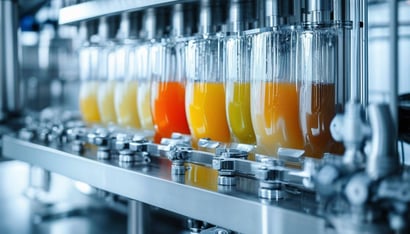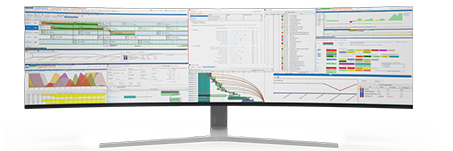Scheduling for Compliance with Regulatory Standards
From food safety regulations to sustainability requirements, the food and beverage industry operates under stringent guidelines to safeguard consumer health and maintain operational integrity. At the heart of meeting these standards lies effective production scheduling.
In this blog, we look into the significance of scheduling for compliance and explore the integration between PlanetTogether, a leading scheduling software, and ERP systems like SAP, Oracle, Microsoft, Kinaxis, Aveva, and others.

The Regulatory Landscape
From the Food Safety Modernization Act (FSMA) in the United States to the Global Food Safety Initiative (GFSI) standards globally, manufacturers face a myriad of regulations aimed at ensuring product safety, quality, and traceability. Additionally, environmental regulations, labor standards, and ethical sourcing requirements further add to the compliance complexity.

The Role of Production Scheduling
Production scheduling serves as the backbone of compliance in food and beverage manufacturing. It involves optimizing production processes to meet demand while adhering to regulatory standards.
Here’s how effective scheduling contributes to compliance:
Traceability and Lot Tracking: With strict regulations mandating traceability throughout the supply chain, production scheduling plays a pivotal role. By accurately tracking lots and batches from raw materials to finished goods, manufacturers can swiftly identify and address any quality or safety issues, ensuring compliance with regulatory requirements.
Just-in-Time Production: Minimizing inventory holding times is essential for compliance with food safety standards. Production scheduling facilitates just-in-time manufacturing, reducing the risk of product spoilage or contamination while optimizing resource utilization and minimizing waste.
Allergen Management: Food allergens pose a significant risk to consumer health, necessitating stringent labeling and segregation protocols. Production scheduling ensures effective allergen management by scheduling production runs in a manner that prevents cross-contact and contamination, thereby meeting regulatory obligations.
Equipment Maintenance and Calibration: Regulatory standards often mandate regular equipment maintenance and calibration to ensure product quality and safety. Production scheduling integrates maintenance schedules seamlessly, preventing production disruptions and ensuring compliance with regulatory requirements.


Integration between PlanetTogether and ERP Systems
While production scheduling is integral to compliance, its effectiveness is enhanced through integration with Enterprise Resource Planning (ERP) systems. PlanetTogether, a robust scheduling solution, offers seamless integration with leading ERP systems such as SAP, Oracle, Microsoft Dynamics, Kinaxis, Aveva, and others. Here’s how this integration streamlines operations and enhances compliance:
Real-time Data Exchange: Integration between PlanetTogether and ERP systems enables real-time data exchange, ensuring that production schedules are based on accurate demand forecasts, inventory levels, and resource availability. This dynamic synchronization minimizes scheduling conflicts and optimizes production efficiency while maintaining compliance with regulatory standards.
Enhanced Visibility and Transparency: By consolidating production schedules, inventory data, and regulatory requirements within the ERP system, stakeholders gain enhanced visibility and transparency into the manufacturing process. This visibility enables proactive decision-making, timely adjustments, and effective compliance management across the organization.
Automated Compliance Checks: Leveraging the data synchronization capabilities of integrated systems, PlanetTogether can perform automated compliance checks during the scheduling process. Whether it's verifying ingredient specifications, monitoring allergen segregation, or scheduling equipment maintenance, automated checks ensure that production schedules align with regulatory standards, reducing the risk of non-compliance.
Streamlined Documentation and Reporting: Compliance in food and beverage manufacturing often entails extensive documentation and reporting obligations. Integration between PlanetTogether and ERP systems streamlines these tasks by automating data capture, generating compliance reports, and maintaining audit trails. This simplifies regulatory compliance documentation, facilitating regulatory audits and inspections.
In the intricate landscape of food and beverage manufacturing, compliance with regulatory standards is non-negotiable. Effective production scheduling lies at the core of compliance, enabling manufacturers to meet stringent requirements while optimizing operational efficiency. By integrating PlanetTogether with ERP systems such as SAP, Oracle, Microsoft Dynamics, Kinaxis, Aveva, and others, manufacturers can streamline scheduling processes, enhance visibility, and ensure compliance across the organization.
Embracing integrated scheduling solutions is not just a strategic imperative; it's a pathway to operational excellence and regulatory compliance in the food and beverage industry.
Are you ready to take your manufacturing operations to the next level? Contact us today to learn more about how PlanetTogether can help you achieve your goals and drive success in your industry.























LEAVE A COMMENT